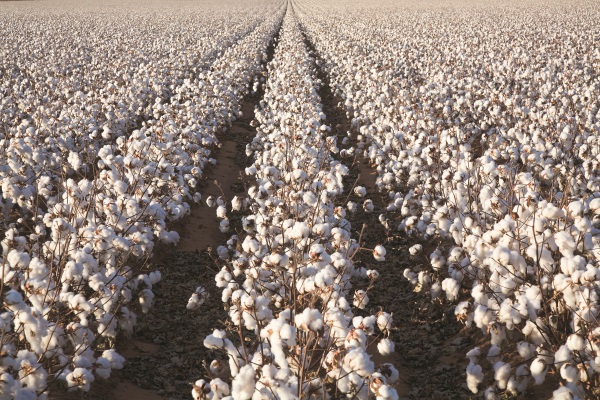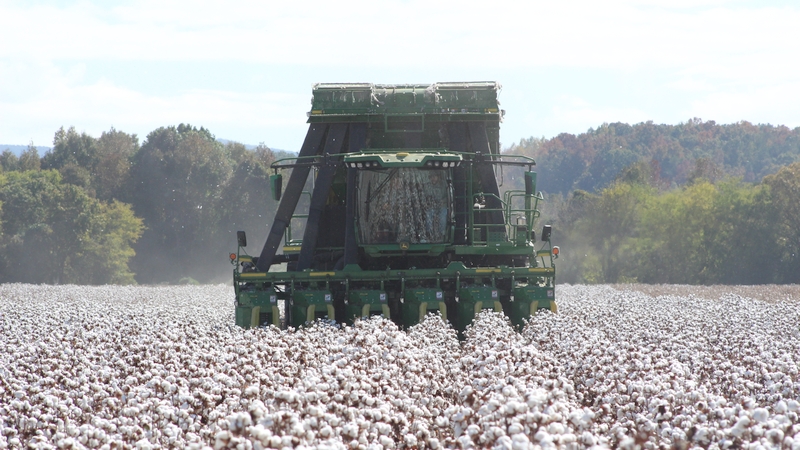NCC’s Hardwick Briefs Congress on Cotton Issues
NCC Chairman Jay Hardwick is scheduled to meet Members of Congress and staff the week of Nov. 2 to discuss a number of critical issues and concerns including disaster assistance, trade policy, farm bill implementation, climate change legislation and food safety.
Hardwick plans to convey the deep concerns growers, ginners, warehousers, cottonseed handlers and related agribusinesses have about the significant financial losses resulting from the rain-delayed harvest of cotton and other crops in the Mid-South, particularly Arkansas, Mississippi and Louisiana. He also hopes to remind Congress members that losses resulting from the ’08 hurricanes and the severe drought in south Texas also resulted in severe financial losses which have not been addressed. Hardwick also plans to express the industry’s grave concerns about the regulatory drought in California which has resulted in serious financial damage to farms and related businesses as well as created massive unemployment.
In the Mid-South, excessive rains, which have resulted in historic delays in harvest, will force some acres to be abandoned completely, and on harvested acres, cause significantly reduced yields and quality for both lint and seed. Gins, warehouses and other businesses that rely on cotton production will suffer substantial financial losses due to reduced volume.
The NCC and its affiliated organizations are committed to work with local leaders, organizations and government agencies to ensure loss data are accurately collected and communicated to appropriate officials in a timely manner.
As soon as the losses can be documented, the NCC urges local officials to initiate steps to obtain Secretarial disaster declarations, thus triggering assistance programs and also urges all agencies to fully utilize existing programs and authorities to provide financial assistance to growers and related agribusinesses.
The ’08 farm law includes a permanent disaster assistance program (SURE) and NCC will continue to urge USDA to act expeditiously to implement the provisions of the new law and re-evaluate the ability to make advance payments.
However, initial NCC staff evaluations, conducted in advance of publication of the necessary implementing regulations, confirm that the new disaster program has significant shortcomings, including: payments for ’08 losses will not be available until early ’10 and ’09 losses can not be made until late ’10 or early ’11; the payment rates based on revenue shortfalls and tied to crop insurance coverage will provide very little meaningful financial assistance to growers with significant losses and none to growers with shallow losses; and there are no provisions to assist ginners, warehousers and other businesses for their disaster-related losses. These shortcomings are not a reflection of poor Congressional planning, but rather they are the result of budget constraints placed on the program drafters during the ’08 farm bill debate.
It also should be noted that in spite of continued efforts to improve the program for Sunbelt crops, including cotton, crop insurance is often too expensive for the coverage offered so many producers purchase minimum coverage only because lenders generally require it to qualify for production loans.
In advance of his meetings, Chairman Hardwick said, “The cotton industry recognizes the political, policy and budget challenges associated with requesting Congress to approve ad hoc disaster assistance, but if there is insufficient financial assistance available under existing authority, the industry will work with Congress to promote enactment of emergency disaster assistance legislation at the appropriate time. We will make every effort to insure that legislation addresses losses across the Cotton Belt resulting from numerous natural disaster and regulatory actions. My visit next week will likely be the first in a number of efforts to convey accurate information to our friends in Congress and the Administration. I am pleased that representatives from our affiliated producer organizations in Mississippi, Louisiana and Arkansas will also be in Washington next week. I look forward to working with them and our friends in other national commodity and general farm organizations on this serious matter,”
“I must caution, however, that the last ad hoc disaster assistance measure was approved in 2007, before the enactment of permanent disaster assistance (SURE), and covered losses suffered in one of three years at the producer’s option – 2005, 2006 and 2007,” said Hardwick.
Due to budget constraints, the most recent assistance provided coverage only for losses in excess of 35 percent at 42 percent of the average price. Last year’s effort by Sens. Landrieu (D-LA), Lincoln (D-AR), Cochran (R-MS) and others to approve assistance for hurricane losses was not successful in spite of strong support by NCC and other groups, suggesting that this year may again be a challenging environment.









